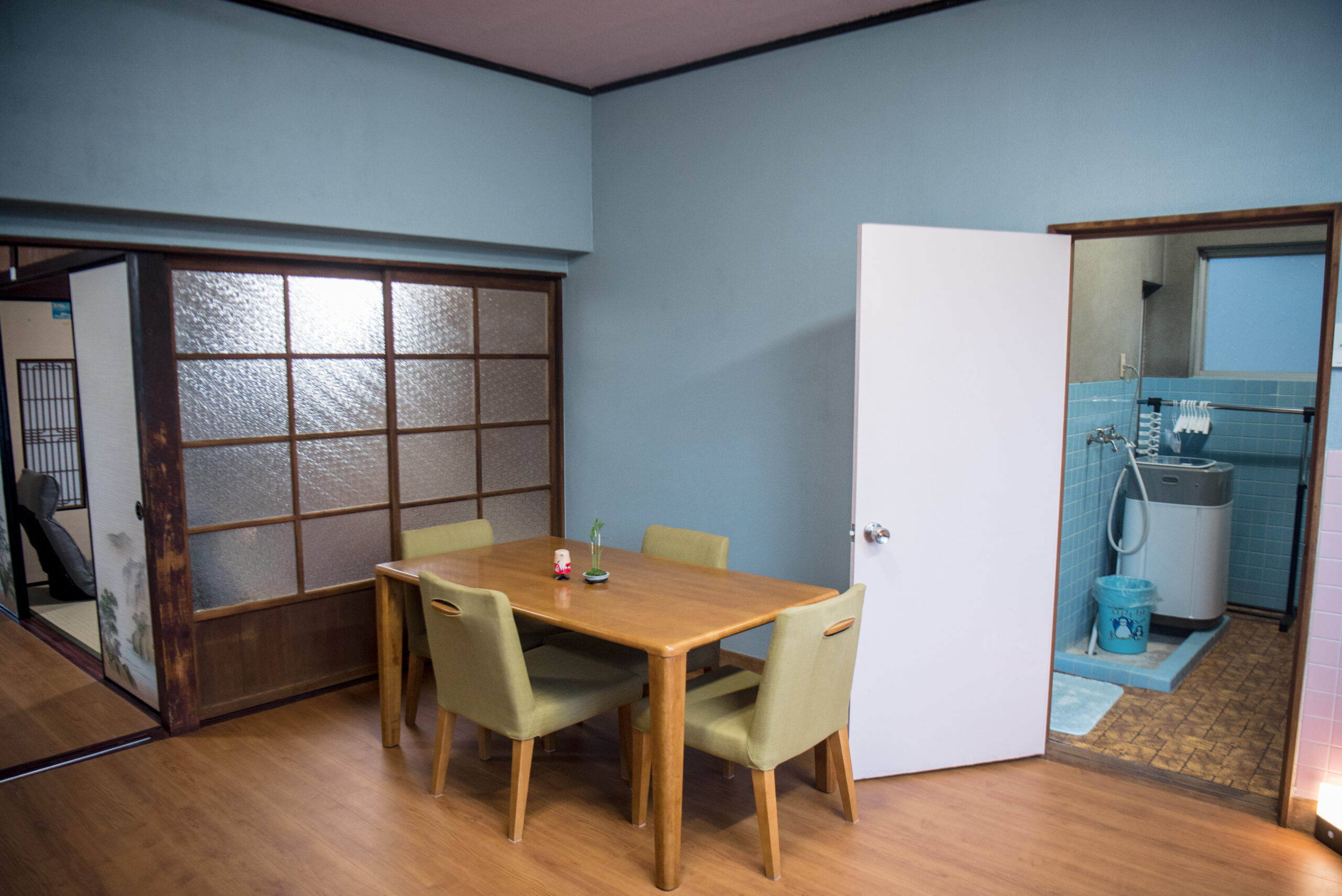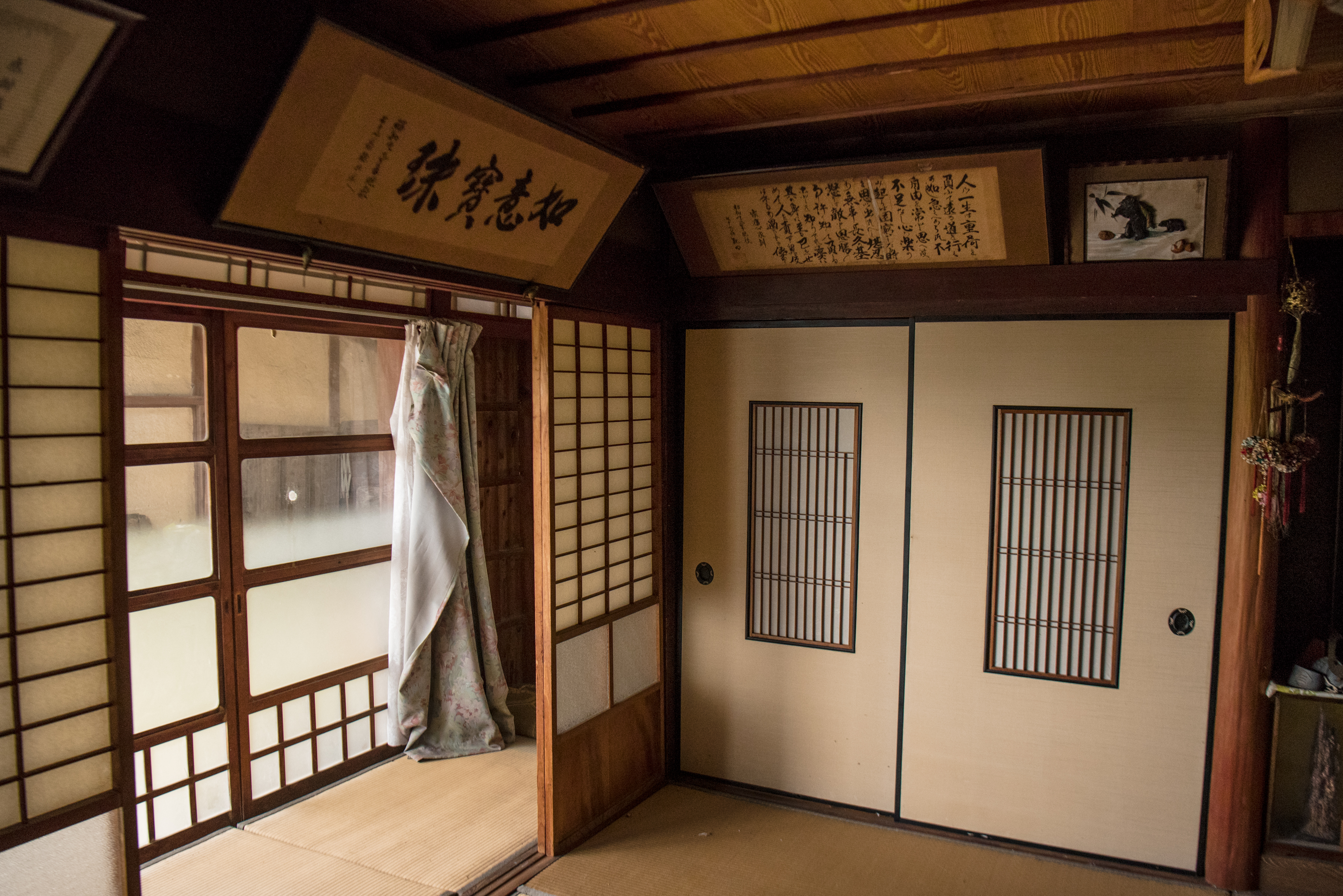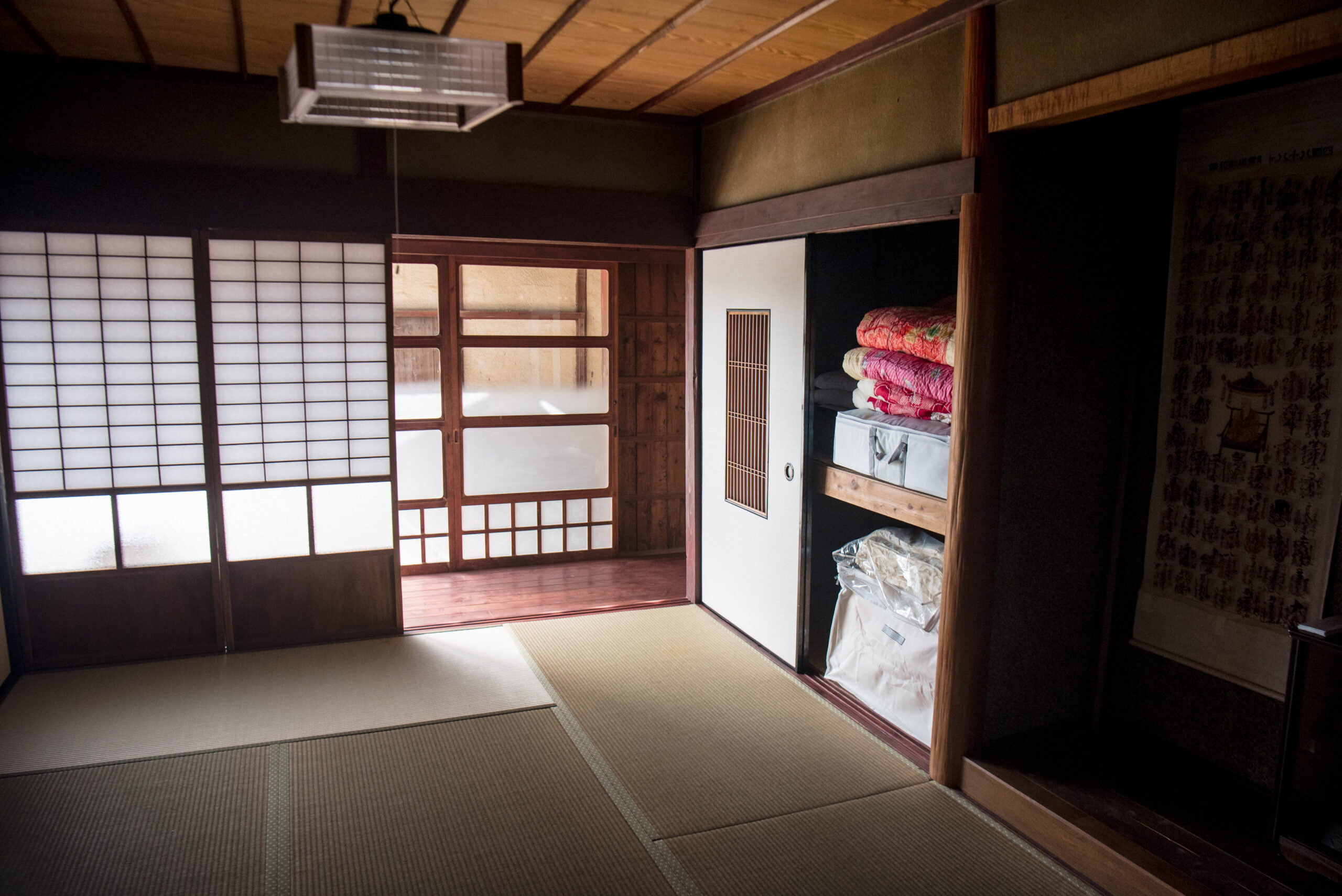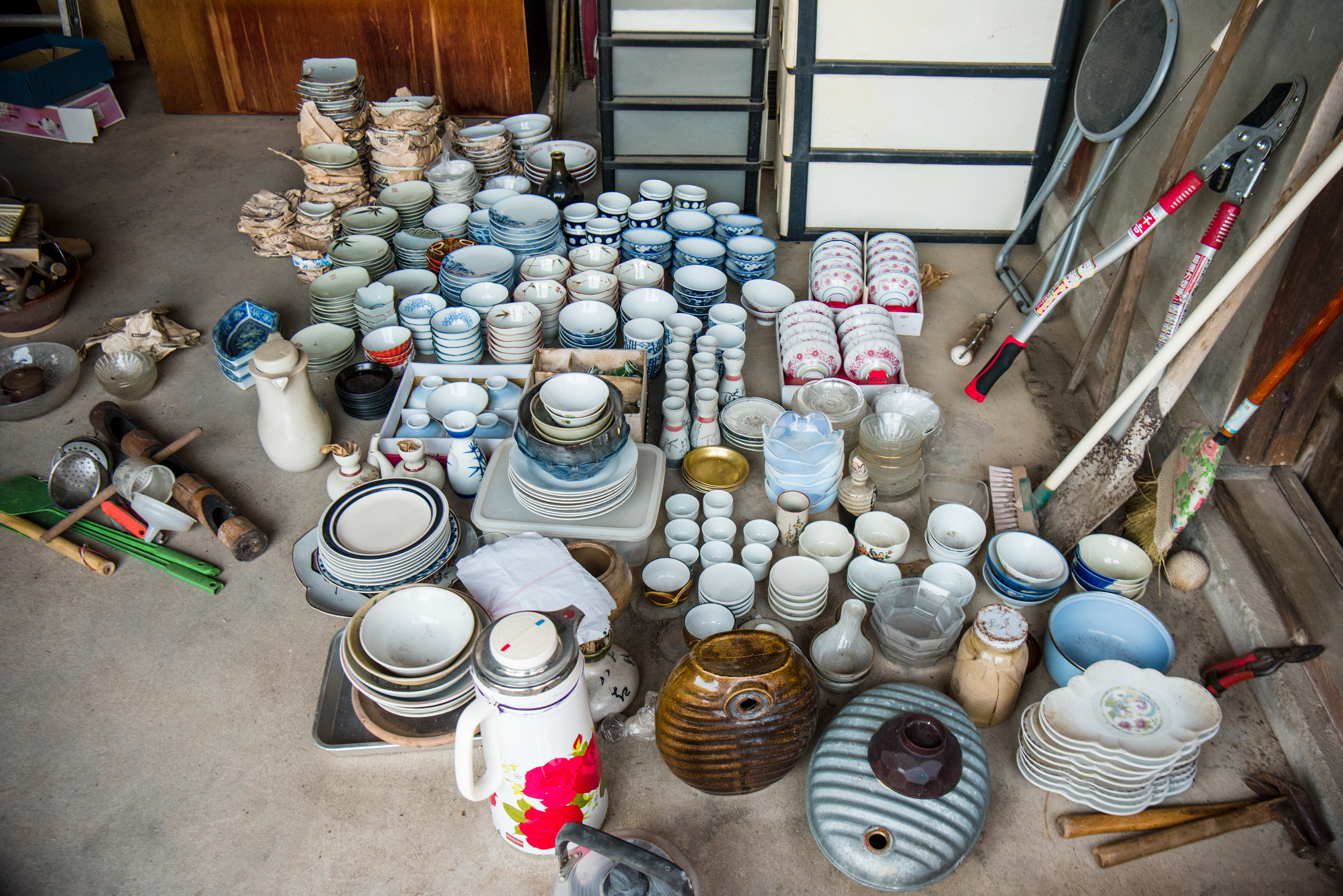Now that Benton Guesthouse is open and we have been welcoming guest for a few months, let’s reflect back on how far we’ve come. It really is hard to believe that we managed to pull this off in six short months, in order to stay on the Startup visa schedule. But we did it! We poured our heart and soul into transforming an ‘akiya’ from a state of abandonment for over a decade, into our cute little guesthouse on Ōmishima island.
For this installment, I don’t intend to cover every step of the real estate purchase or rental license process, as those will eventually be their own blog posts. Instead, I’d like to give an overview of the general process, discuss our timeline, our expenses, and how long we estimate it will take to recoup our investment. It might surprise you!
If you prefer to listen to your content, we can read through the blog together with our YouTube video ⌄


From Akiya to AirBnB » The General Process Overview
- Find a house you love! This could be from an “akiya bank” or from a private sale.
- Contact the local municipality, to check their short-term rental requirements. *
- Purchase the house. Foreigners can purchase property as a tourist or resident. **
- Renovate and furnish the house, considering what your future guests will need.
- Meet the local municipality’s fire code regulations, which could include:
- Hiring a local contractor/electrician who understands the fire code requirements; they will likely be accustomed to working with the fire department on their clients’ behalf. The requirements could be different in your area, but you’ll need special smoke detectors in every room of the house, fire extinguishers, and exit lights, all of which can only be installed by a professional.
- Possibly complete some additional work on your own, to meet regulations not requiring a professional.
- Once approved: receive a certificate from the Fire Department.
- Complete the ‘minpaku’ short-term rental application, which could include:
- Hiring a local ‘judicial scrivener’ (like a junior lawyer) who understands the specific local rental laws, and who will work with the municipality on your behalf. Our scrivener went to City Hall in person a few times while preparing the application. Again, the requirements could be different in your area, but our application required the original hardcopy of the fire department certificate, so this process could not begin until that process was complete.
- If your proficiency is high enough, you could possibly complete this application on your own.
- Once approved: receive a license number and physical license from the municipality.
- Complete your listing on AirBnB:
- Create your listing title, introduction, detailed description, and photo walkthrough.
- Input your license number, and allow adequate time for AirBnB to verify the license validity.
- Link your Japanese bank account (to receive your hosting payments in yen), and allow adequate time for AirBnB and your Japanese bank to verify the connection. ***
- Once approved: your AirBnB listing can be published.
- Start welcoming guests! ***
* Note about Japan’s short-term rental requirements:
The regulations can differ by city and prefecture, so it’s very important to make sure you can meet the requirements for your area, before purchasing a property!
** Notes about purchasing property in Japan:
Foreigners can purchase property in Japan, with or without Japanese residency. We purchased one ‘akiya’ while in Japan as tourists, and our second ‘akiya’ after receiving visas/residency. The process was only different by a total of one document: a notarized US affidavit in lieu of the Japanese ‘juminhyo’. For those looking for their path towards life in Japan, it’s important to remember that owning property does not grant you any form of residency.
The best resource I’ve found (by far) for explaining Japanese real estate in an easy-to-understand format: Cheap Houses Japan. The weekly newsletter subscription shares 20 amazing properties each week, and there’s also an affordable ebook ‘How To Buy a House In Japan’ that outlines each step of the real estate process. But, his website is also rich with helpful (and free) resources in the form of interviews, blog posts, and FAQ.
Disclaimer: We do have a working relationship with Cheap Houses Japan. We’re featured in his article “Renovating an Old House into an AirBnB in Japan: An Interview with Dani & Evan Benton”. We used his recommendation for our immigration lawyer. And soon we’ll have a referral link for his newsletter subscription. But! Long before those things, we were newsletter subscribers, and we actually found one of the two ‘akiya’ we own from browsing his page. It’s a great resource ran by a friendly person!
*** Note about earning AirBnB income in Japan:
Of course, before hosting guests, you need to be able to legally earn an income in Japan. Additionally, you will need to file taxes. So at the minimum, we recommend working with a Japanese immigration lawyer and accountant.
We had a small speedbump when our first AirBnB payment was sent to our Japanese bank account. Remember that Japan handles names differently. It’s not wrong, or weird, but different: last names are written first, and for foreigners with middle names, they’re not allowed to be left off important documents, nor are they allowed to be abbreviated (the example Japanese people may be familiar with is American President John F. Kennedy, and they are often surprised to learn his complete middle name is Fitzgerald). So, the AirBnB payment was being sent to Evan Benton, but our Japanese bank account belongs to Benton Evan Christopher. Every important Japanese document requires the full name Benton Evan Christopher. We spent many hours with AirBnB customer service, but could not seem to find a way to add a middle name for the payout settings. Eventually, our bank was nice enough to help move things along, and I think they gave the transaction a manual override! Our subsequent payouts had no problem.
Considering whether or not to hire a professional to assist with property purchase:
A real estate transaction in Japan can be completed with just a buyer and seller, with a realtor to facilitate the process, and a ‘judicial scrivener’ to file the proper paperwork with the local governing agencies. However, many foreigners buying property in Japan may not be comfortable completing the process on their own, or, Japanese-speaking realtors may request foreign buyers hire a Japanese-speaking professional to act on their behalf.
We did not hire any assistance for our two property purchases! But if you do choose to hire a professional, there are a range of options. Some companies offer to complete the entire process on your behalf, while other companies offer consulting, general assistance, or just translation. Since I don’t have personal experience using any of these companies, I’m sorry that I don’t have any recommendations. Please let me know if you’ve had a positive experience with one of these companies, so I can share with others!
Fun Fact: We’re working with Shimanami Property to assist his English-speaking clients!
For those of you looking to buy a home in the Shimanami Kaido area, we’re working alongside local realtor Shimanami Property, to assist his English-speaking foreign buyers. Since we purchased two houses from him, we’re familiar with the process. Our services include: consulting, help to explain some potential real estate complications (farmland, inheritance), and offer live video tours and photography for those interested in purchasing from outside the country, as well as translation and communication with Nomoto-san from start to finish. We’d love to have you as a new neighbor in the Shimanami Kaido area.


Timeline of Events
The timeline below only includes important dates relating to our house purchase, renovation, and rental license, up until the point of opening Benton Guesthouse. For a more thorough timeline of events, please check out my other blog, Japan Data: ‘Startup visa’ to ‘Business Manager visa’ Complete Process, and corresponding YouTube video.
- February 16: Arrive in Japan on tourist status.
- February 17: Travel from Tokyo to Ōmishima island.
- February 21: Tour three potential ‘akiya’ houses to purchase. We ended up buying two of them!
- March 27: Put a deposit on our first house, which would become Benton Guesthouse.
- March 28: Immediately start cleaning, with the approval of the seller, prior to purchasing.
- May 10: Officially purchase our first house! Now we could begin real renovations.
- June 7: Get electricity and water turned on.
- June 19: Received residency status in Japan.
- June 25: Move in!
- June 27: Get internet installed. The first time internet had been installed at this address!
- July 3: Contractors begin their work. More details below.
- August 22: First meeting with contractor for ‘Minpaku’ Rental License fire alarm requirements.
- September 15: We officially purchased our second ‘akiya’ house!
- September 15: Contractors finish their work. Evan and I are working every day to finish renovations!
- October 2: Fire Department inspection for ‘Minpaku’ Rental License.
- October 20: Receive Fire Department Certificate for ‘Minpaku’ Rental License.
- November 1: Original estimate for Benton Guesthouse to open.
- November 6: Renovation “Phase 1” complete.
- November 16: Receive ‘Minpaku’ Rental License.
- November 20: Benton Guesthouse is open for business!
- November 24: Benton Guesthouse hosts our first guests!!!


From Akiya to AirBnB » The Financial Numbers
Here are my numbers broken down into a few categories:
COST TO PURCHASE:
$7,500 – Cost of house ¥1,000,000
$1,500 – Purchase fees (realtor, judicial scrivener, and property tax)
COST TO RENOVATE:
$16,500 – Various Contractors and Professionals: Since we were working against the clock to meet the Startup visa 6-month requirements, we hired a local contractor to help us stay on schedule. This includes the cost of materials, such as a new hot water boiler and installation, new electrical breaker box, some new electrical outlets, new kitchen faucet and pipe, twenty-five custom-made tatami mats and installation, eight fabric screen doors refurbishing, wood flooring for five rooms, wood wall paneling for two rooms, wood ceiling paneling for two rooms, paint in kitchen and bathroom, and shikkui plaster.
$2,500 – Supplies and tools for our own restoration work: beams and floor boards for sub-floor repair, wood for various construction projects, wood and handles for new kitchen cupboard doors, wood stain for all the exposed woodwork in every room of the house, washi paper for the ‘shoji’ screen doors and cubby doors, paint, brushes, rollers, lacquer, varnish, stainless steel polish, hydrogen peroxide, baking soda, cement, tile spacers, grout, contact paper, sandpaper, screws, nails, felt pads, foam strips, gap tape, gap filler, toilet gaskets, window screen, and a couple trips to the garbage disposal center. We bought a used miter saw, new saw blade, and router, for the kitchen cupboard doors; hand tools, tile-work tools, sliding screen door repair tools, drill bits, and buffer and sander tools that attach to our power drill. And of course, various cleaning supplies, gloves, rags, scrubby brushes, and cleaners for all the different surfaces: wood, tile, plastic, metal, cement, and glass.
Without taking the time and effort to renovate ourselves, the cost would have been much higher! For example, we only spent about $100 to restore the stainless steel kitchen cupboards and make new cabinet doors!!! Yes, our time is valuable, but I couldn’t even estimate how much expense we saved by doing so much of the work ourselves.
COST FOR ‘MINPAKU’ RENTAL LICENSE:
$2,975 – Contractor to meet Fire Department compliance ¥440,000
$2,095 – Judicial Scrivener for ‘Minpaku’ License Application ¥309,800
COST TO FURNISH:
$5,000 – “Home Comforts” such as:
- Furnishings: kitchen table and chairs, office desk and chair, western-style bed frame and mattress, two living room floor chairs, bedroom chair, entertainment center;
- Bedding: winter and summer blankets with blanket covers, four floor mattresses with mat covers, ten pillows and covers, eight soba pillows and covers, western-style bed sheets, various storage containers for bedding closets;
- Japanese house basics: guest slippers, guest ‘hanten’ house jackets;
- Cooking basics: cooking utensils, basic cookware, knives, chopsticks, silverware, coffee pods, tea, rice, salt, sugar, mirin, cooking sake, soy sauce, paper towels, hand towels;
- Appliances: stove, rice cooker, blender, fridge, coffee maker, instant hot water boiler;
- Bathroom basics: heated toilet seat, shower seat, shower rack, bathtub cover, toilet brush;
- Toiletries: shampoo, conditioner, body soap, hand soap, various dispensers, toilet paper;
- Clothes-washing: washing machine, drying rack, hangers, clips, laundry soap;
- Winter comforts: eight kerosene and electric heaters, extra snuggly blankets;
- Cleaning supplies: vacuum, mop, various cleaners;
- Other basics: numerous extension cords, USB chargers, 3-prong plugs for foreign electronics, modem;
- and a Nintendo Famicom!
TOTAL COST FOR OUR AKIYA-TO-AIRBNB:
$38,000
Remember, we restored and reused as much as we could!
Between our two ‘akiya’ houses, we were fortunate to find treasures like: almost all of the Shōwa-era home decorations, decorative hanging scrolls, framed art, display cases, a ‘kotatsu’ heating table with vintage blankets, floor pillows, all the porcelain dishes and drinking glasses, clocks, bathroom vanity, three freestanding wooden cupboards, stainless steel kitchen cupboards, vintage lime green hair dryer, beautiful antique ‘tansu’ dresser, many small tables, three freestanding clothes racks with wooden hangers, retro metal electric fans for summer, radio and cassette player, a flat-screen CRT TV for vintage video games, and even little things like umbrellas, lamps, light bulbs, all saved from the landfill!
We also received some generous gifts from neighbors, including our cute purple couch, a wicker room divider, some large glass cases, and more Shōwa-era decorations. When choosing what items to purchase, we prioritized: used goods from recycle shops, local small businesses, and only relied on online shopping as an absolute last resort (it saved us a few hundred dollars on the bed frame).
Notes about continuing expenses:
There are additional continuing monthly expenses, now that the guesthouse is operational. Monthly, we have utilities: internet, water, electricity, natural gas (for the stove), and kerosene gas (for the instant hot water boiler and the little room heaters). Annually, we have property taxes. Fortunately these costs are relatively low.
Notes about future “Phase 2” renovations:
We’ve made pretty clear that our guesthouse is what we consider “Phase 1” of renovating. It’s perfectly comfortable, inviting, and ready for guests. But of course, there’s a long list of additional things we would love to eventually make even better! These include: resurfacing the bath tub and restoring the wood-fired heat aspect, beautifying the ‘doma’ entry room floor, adding a second bathroom, adding a sitting and BBQ area to the side yard, installing a French drain around the outside of the house, and fixing the driveway, to name a few. So, yes, we will be adding more to the investment over time. But that will only happen as time and budget allows.


All things considered, do we still view this as a wise investment?
Absolutely. For us, $38,000 is really a lot of money! But it’s a pretty small investment when you take into consideration it’s a whole house and ongoing income stream.
We’re aware that houses in Japan are a depreciating asset. When you live in a country with an estimated 10-12 million (and increasing!!!) abandoned houses, resale value is not really something you can count on. But of course, we don’t intend to sell this house. The goal is to eventually pay for itself then continue to generate an income.
So how long do we estimate it will take to recoup our investment?
Short answer: about two years.
Long answer: With the current exchange rate, $38,000 USD is equal to ¥5,708,930. For the sake of math, let’s round that up to ¥6,000,000. Based on our nightly base rate of ¥20,000, we anticipate earning an average of ¥300,000 a month. That would be 15 booked nights. Some stays will have additional guests, increasing the nightly rate. ¥6,000,000 divided by ¥300,000 is 20. Factoring in continuing monthly expenses and the slower months while gearing up to full speed, we can round that 20 months to 24 months.
So, our super rough estimate is to recoup our investment in about two years.


Thanks again for tuning in, and I hope this helped to answer some of the more common questions. What do you think… are you in the market for a house in Japan? Would you consider purchasing an abandoned house, and bringing it back to life? Would you prefer to restore to the original character, or renovate into something more modern? Looking to travel or move to the Shimanami Kaido area, or even Ōmishima specifically? You’re not the only one! It seems like I’m contacted at least weekly by someone looking to move here from out side Japan. I’d love to connect and help however possible.
Our YouTube video, walking through this blog post together ⌄
Thanks for reading,
Dani & Evan Benton
P.S. You can check out Benton Guesthouse on AirBnB and Google Maps!
P.P.S. Our Benton Homestead YouTube channel is currently at 88% of our goal to reach 1,000 subscribers, at which point we’ll be able to start earning a small amount of income from the videos we make for y’all. Each time you like, comment, subscribe, and share our videos, you’re helping us meet our business goals, and continue to live in rural Japan.






Really, really interesting, helpful and most of all, inspiring! I am VERY happy for you both in that your road to settle in Japan has been (by the sound of it) blessed. Your place looks very relaxing and would be on my list of places to visit (overnight) in that area. I have visited Japan multiple times, but have usually been to Kyoto, Osaka and once to Misasa (a few years ago). The dream is to also do something similar … buy an “abandoned” home and refurbish for future use somewhere in the country. I will definitely be following your page as well as youtube channel. Wishing you all the best and looking forward to further updates. Note to self: have a closer look at the different visas available to foreigners …
Thank you so much! That’s all really kind of you to say. We would be happy to meet and chat, and of course host you at the guesthouse, if you ever find yourself this way. I hope you’re able to follow your dream and do something similar! There are lots of changes to visas coming in the near future, including the addition of the Digital Nomad visa and some major changes to the Startup visa, so Japan seems to be moving towards allowing more options for foreigners. Wishing you the best!